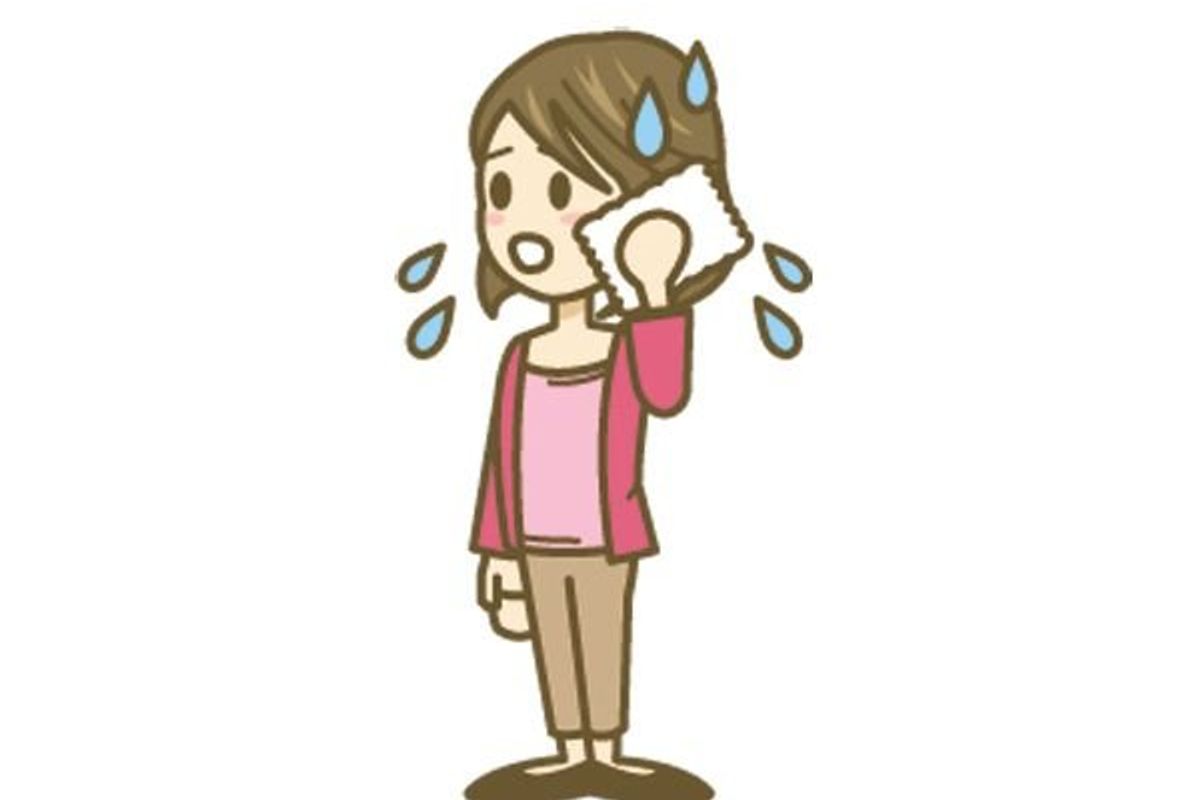

Sheryl Kraft
Sheryl Kraft, a freelance writer and breast cancer survivor, was born in Long Beach, New York. She currently lives in Connecticut with her husband Alan and dog Chloe, where her nest is empty of her two sons Jonathan. Sheryl writes articles and essays on breast cancer and contributes to a variety of publications and websites where she writes on general health and wellness issues. She earned her MFA in writing from Sarah Lawrence College in 2005.
Full BioLearn about our editorial policies
Medically Reviewed
We may be together, but it's like we live in two different climates.
I'm comfortable and blissful in the summertime, only bothered by extreme heat and humidity (and even then, I'll choose that over winter weather). My husband, on the other hand, insists it's uncomfortably hot when the temps start to creep north of 75. (I'm likely still wearing a light sweater at that point.) We're constantly playing air conditioning shuffle—he turns the thermostat down, I turn it up.
And so on.
Some people have more serious issues with heat. If your body can't compensate for the heat and, in turn, help you cool off, you can become sick. Heat exposure is not something to take lightly: from 1999-2009, there were 7,233 heat-related deaths in the United States.
What would affect your body's ability to cool itself during extreme heat? For one thing, high humidity. Your sweat can't evaporate as quickly—and your body is not able to release heat as quickly as it needs to.
And then there are personal factors to consider, like age, obesity, poor circulation, prescription drugs, alcohol or drug abuse, fever, heart disease or sunburn.
At highest risk are the elderly or the very young and those with chronic diseases or mental illness. But the heat can sicken even the young and the healthy if they are doing strenuous activities during hot weather.
Know the signs and symptoms of heat-related illness: confusion, heart rhythm problems, dizziness, nausea, confusion, visual problems and fatigue. Without quick action, you could develop brain damage, organ failure or even death.
Taking action includes removing extra clothing, fanning your body or wetting it with cool water (you can put cool wet towels or ice packs on your neck, forehead or under your arms), spraying yourself with water from a hose or shower, or sitting in a tub filled with cold water.
You think you can't beat the heat? Here's how:
- Obvious, but not always possible, is to have an air-conditioned home—or at least an air-conditioned room within your home. If you don't, try to spend as much time as possible on extremely hot days in public places with air conditioning. It may not be enough to rely on just a fan for your primary cooling device.
- Even if you don't feel thirsty, make sure to drink plenty of fluids; in fact you should drink more water than usual, even if you're not feeling thirsty. Even at rest, we lose about four to eight cups each day through urination, defecation and just plain breathing. Becoming dehydrated is easy without adequate fluid intake; complications from chronic dehydration include fatigue, skin allergies, muscle aches, joint pain, confusion and constipation. And if left untreated, over time it can lead to a potentially life-threatening slowdown of the body's circulation and cellular functioning.
- Schedule outdoor activities carefully, aiming to avoid midday, when the sun is hottest. If you are working or exercising outside, try to do so earlier or later in the day when the temperature is cooler, and make sure to drink two to four cups of water for every hour you spend outside.
- Avoid alcohol or liquids with high amounts of sugar.
- Take cool baths or showers to cool your body down.
- Wear loose, lightweight and light-colored clothing.
- Pace yourself. Start activities slowly; pick up the pace gradually. If you're not fit or you're new to exercise, your body may have a lower tolerance to the heat; you may want to reduce your intensity and take frequent breaks.
- Don't use the stove or oven to cook; it will only make your house hotter. Eat cold foods when possible or cook using a microwave or outdoor grill.
- Avoid direct sunlight and always wear sunscreen; a sunburn can decrease your body's ability to cool itself.
- Be aware of your medications. Some can affect your body's ability to stay properly hydrated and deal with the heat. Among those that might put you at risk are beta-blockers and diuretics, antihistamines, tranquilizers and antipsychotics.
You might be interested in





